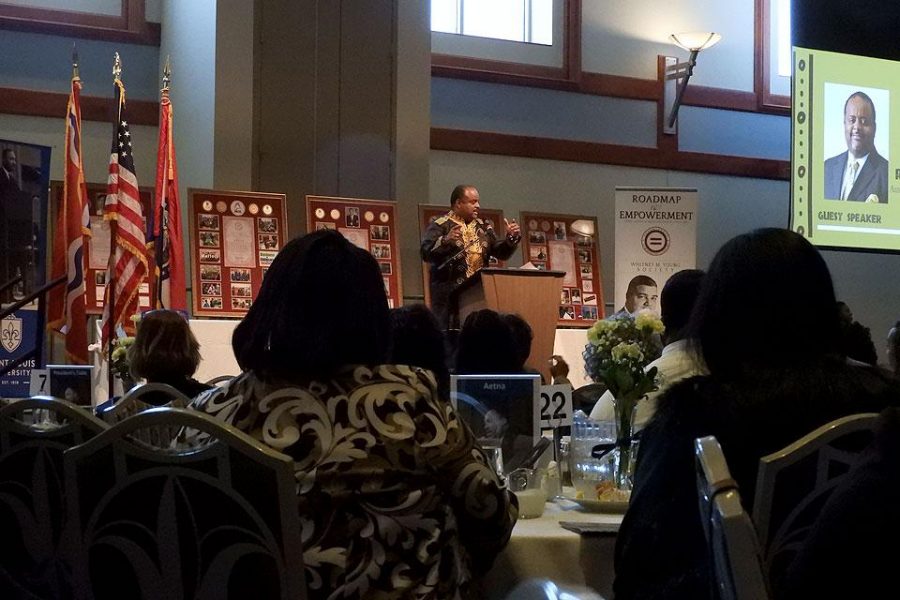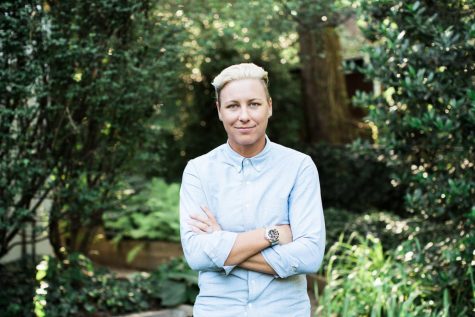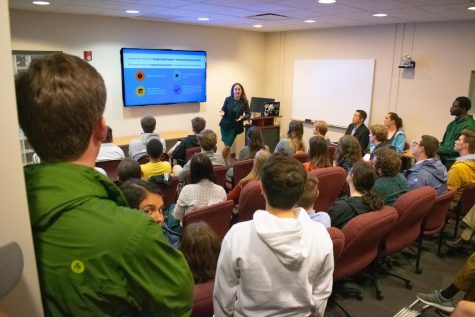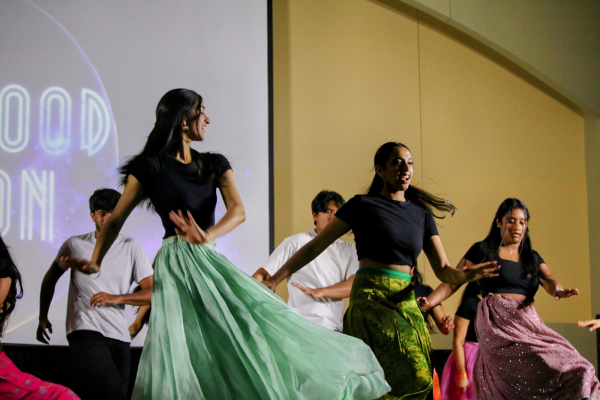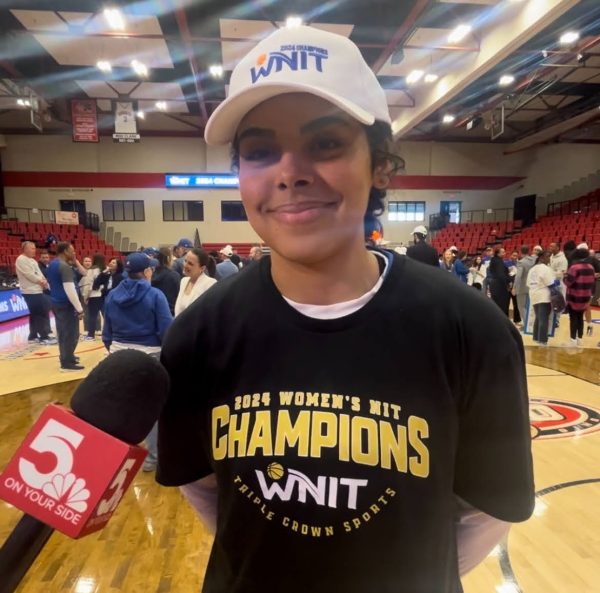Awards Ceremony Honors MLK’s Life & Legacy
Last Thursday, Jan. 16, SLU hosted its annual memorial tribute for the Rev. Martin Luther King Jr., honoring the life and legacy of King as well as those in the St. Louis area that exemplify King’s vision of justice and racial equality.
The event is held each year as a reminder of King’s visit to SLU in 1964, when he addressed a crowd of nearly 4,000 in the former West Pine Gym. King’s visit to SLU in 1964 came just two days before he was honored with the Nobel Peace Prize, and two months before his “I Have a Dream” speech.
For the past nine years, the University has organized the memorial tribute to mark King’s visit, with an awards ceremony that recognizes those working in King’s legacy in the St. Louis community. The memorial tribute also features a keynote address by a notable voice for civil rights. In years past, keynote speakers have included Martin Luther King III, King’s eldest son, and UN Ambassador Andrew Young, both influential civil rights figures.
This year, the noted journalist, author and television personality Roland Martin gave the keynote address. Martin, who has written three books, including “Speak, Brother! A Black Man’s View of America,” has made an illustrious career discussing current events from an African-American perspective.
Martin was named journalist of the year in 2013 for his efforts to chronicle issues facing African American voters during the 2012 presidential election, including voter suppression and intimidation. In 2008, he received the President’s Award by the National Association of Black Journalists for his multi-platform advocacy work.
Before Martin’s keynote address, the audience heard remarks by President Fred Pestello, Ph.D., and SLU alumnus Michael P. McMillan, the president and CEO of the Urban League of Metropolitan St. Louis.
Pestello and McMillan were joined by the Vice President for Diversity and Community Engagement, Jonathan Smith, Ph.D., in an award ceremony honoring those in the St. Louis community furthering Dr. King’s legacy.
Though the recipients devote their energies to a diverse array of causes, from education inequality to health care reform, they are united by their commitment to leading lives of public service following Dr. King’s example.
To begin the award ceremony, Denise Hooks-Anderson, M.D., an assistant professor in the Department of Family and Community Medicine, was awarded the Donald Brennan Humanitarian Award, for her advocacy work related to health disparities and inequality.
The Organization of the Year Award was accepted by Wendell Kimbrough on behalf of Area Resources for Community and Human Services (ARCHS). The organization “funds and strategically enhances initiatives that improve the lives of children and families” in especially disadvantaged areas of St. Louis.
Art McCoy, Ph.D., the superintendent of Jennings school district, was awarded the Education Leadership Award for his efforts to combat inequality in education. Under his leadership, the classes of 2017 and 2018 in the Jennings school district achieved a remarkable 100 percent graduation and career or college placement.
Congressman William Lacy Clay was honored with this year’s Political Leadership Award. Clay serves as Missouri’s senior Democrat in Congress. Currently in his tenth Congressional term, Clay is the Chairman of the House Financial Services Subcommittee on Housing, Community Development and Insurance. In that capacity, he has advocated for fair housing and consumer protection and fought discriminatory practices such as red-lining.
In his acceptance remarks, Clay emphasized his debt to King and his legacy as well as other civil rights leaders, echoing King’s famous declaration that “Anyone can be great because anyone can serve.”
The final award was the inaugural Whitney M. Young Humanitarian Award, which was given to Michael and Neomi Neidorff. Neidorff is the president and CEO of Centene Corporation and has worked to implement programs and services under Medicaid and Medicare.
The event was capped off by Roland Martin’s keynote address examining King’s life and legacy. At the outset of his address, Martin made it clear that his remarks might be tough for some to hear. He warned the audience: “it is my job to make people uncomfortable.”
Martin’s speech focused on King’s legacy in the 21st century, asking the audience to avoid appropriating King and his legacy and instead focus on imitating his commitment to political action. Martin issued a challenge to the audience—“Don’t you dare quote Dr. King unless you are willing to live like Dr. King.”
For Martin, King was more than just a man who gave speeches on racial equality, but a man radically committed to social justice in all spheres of life who paired his electrifying speeches with tangible political action.
Martin challenged his audience to live as King lived, striving for direct and sustained action on behalf of the marginalized and downtrodden.
Your donation will support the student journalists of Saint Louis University. Your contribution will help us cover our annual website hosting costs.



